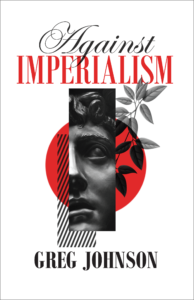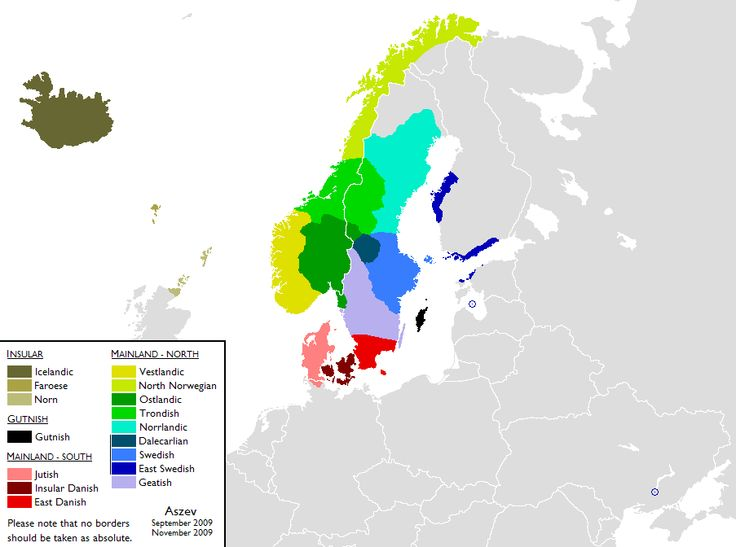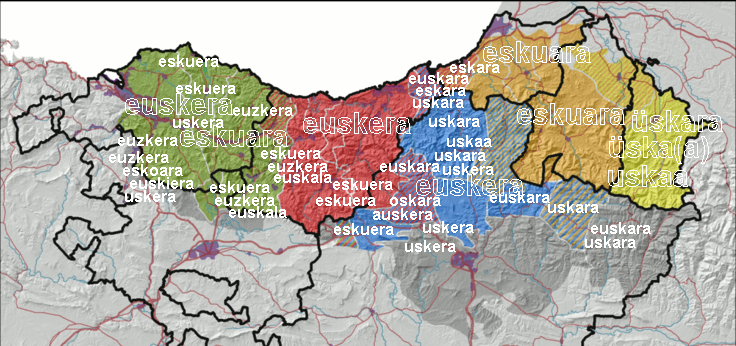Is Ethnonationalism Compatible with Genetic Interests in Practice? Part 1
Posted By Asier Abadroa On In North American New Right | 5 Comments [1]
[1]Photo courtesy of Liz Castro on Flickr [2].
2,106 words
Part 1 of 2 (Part 2 here [3])
How much does White Nationalism have in common with other, more local nationalisms? Is it possible to use popular independence movements for our purposes? Is it possible to use, either in their place or additionally, the petty nationalisms of the current states for our purposes?
Prof. Robert S. Griffin briefly quoted Dr. William Pierce [4] in his book The Fame of a Dead Man’s Deeds: An Up-Close Portrait of White Nationalist William Pierce regarding the ethnonationalist question:
Pierce believes that the one force that can stand up effectively to the New World Order is nationalism, his own white nationalism being one brand of it. He writes:
. . . Our nationalism is really racial nationalism. Our compatriots are our fellow white men and women, our fellow Europeans, everywhere: in America, in Europe, in South Africa. Nationalism in our sense — racial nationalism — is still a relatively new thing as a political ideology, although it is based on instincts much older than any ideology.
A lot of people, conservatives especially, are still much more comfortable with the old-fashioned sort of nationalism — or with an ethnic nationalism which is much more limited in scope than our racial nationalism. Conservatives are more comfortable with Scottish nationalism or German nationalism or Polish nationalism. And that’s all right. We encourage these more limited ethnic nationalisms. We encourage any nationalism which is not anti-European or anti-white. We even welcome Black nationalism, Hindu nationalism, or Chinese nationalism, because nationalists of every variety are facing a much bigger threat today than any rival nationalism. Intelligent Hindu nationalists understand that Irish nationalists, Ukrainian nationalists, and Swedish nationalists need not be hostile to them, and we understand that too.
There is much truth in what Dr. Pierce said. Welsh or British nationalisms are viewed much more favorably, of course, and suffer fewer attacks from the System . . . For good reason! They are simply not a genuine threat. Fearful conservatives opt for it because it is a way to play at being politically-incorrect rebels without taking risks.
It is true that the System does not like any kind of nationalism, except perhaps for some rare exceptions such as in the United States, which is one of the few countries where patriotism is not regarded as politically incorrect — for the simple reason that the Jewish establishment is in the habit of making use of it when they need to manipulate the American people into supporting and waging wars for Israel.
It should be noted, however, that “encouraging” more limited ethnic nationalisms does not mean that we should view our movement as equivalent to those obsolete nationalisms. Nor does it mean that the interests of those nationalisms cannot come into conflict – not only with each other, but also against White Nationalism. Although in principle they are not essentially hostile to other nationalisms, they usually are — and avoiding it will not be in our power. This means that White Nationalism in Germany is not German nationalism, just as White Nationalism in the United States is not American nationalism, and the same can be said of the nationalisms of any of the white race’s other ethnicities or artificial states.
Such obsolete nationalists (and conservatives) are not our allies, but are in fact our most direct competitors. They also rob us of our natural supporters via false narratives. We can only win by replacing them, not by becoming their tool. Thus, in order for us to grow, our first mission must be to disabuse their followers and attract them to something different.
Demystifying romanticisms
Before we continue, it is essential to understand that the success of independence movements usually rests on the degree of their international support, which is why such movements devote a major part of their resources and efforts toward disseminating a narrative of victimhood and their view of history abroad. Consequently, regardless of whether their narrative is true or not, their version is the one that usually ends up prevailing on the international scene.
 [5]
[5]You can buy Greg Johnson’s Against Imperialism here [6].
Because of this, an absurd situation often arises where there is more support in the international arena for the independence of various ethnic regions than one will find even within these very regions.
When those of us who descend entirely from one of these ethnic groups travel abroad, it is very common to meet people who, lacking the most basic notions about our Identity and culture, are convinced that they know what is best for us better than we do, and that we must gain independence (“for our own good,” of course).
It is equally common that these same people — even sometimes among those who call themselves ethnonationalists — are not so condescending toward the white ethnic minorities within their own states. Their pretexts? Exactly the same as those used by centralists in other countries (or even multiculturalists) — and just as wrongly. The most common one is to deny the existence of such peoples, but it is also denied that there is any will among them to secede (even when surveys show that such a desire is more widespread than in other regions whose independence they do support). It is further alleged that there is mixing, and it is then claimed that this process of acculturation should continue rather than their being halted or reversed — apparently, because the nation’s unity is more important to them. Their own ethnic minorities are likewise said to be too few in number to form a viable state (while at the same time they will assert the sovereignty of much smaller micro-states — literally city-states — in other parts of the white world). They are in fact accused of being provincialists in a negative way, and it is then claimed that only a small percentage of said group speaks their original language, and so on.
In this way, especially in Russia and the United States, “ethnonationalism for all” often becomes “ethnonationalism for all others,” while the majority population retains an imperialist stance for themselves. Indeed, both world powers favor sterile and frivolous secessionism within the European continent, but not within their own ethnic, or even racial, territories.
On the other hand, since the days of Woodrow Wilson’s calls for “national self-determination” while simultaneously running the acculturation steamroller over America’s German Belt, the debate in the US has generally proceed from an utterly simplistic approach, aimed at building a world tailored to the ruling class’ imperialist policies.[1] [7]
If White Nationalists are to win, however, they must not base their analysis on simplistic and romantic schemes that are not believed even by the majority of the population of the ethnic groups concerned. It is simply not our struggle; they are only culturalist deviationisms (whose precious external cultural forms can be reintroduced, anyway, if they are in fact ever lost). Our priority must be to preserve our continuity as a race.
No white peoples should fall victim to a hypertrophied preservationist mentality that is overly concerned with minor differences at the expense of more fundamental ones. The objective of this essay is therefore to
- eradicate clichés and erroneous oversimplifications that hinder the understanding of intra-racial identitarian issues;
- dispel naïve beliefs about the feasibility of using nationalisms that are in fact alien to us as cunning disguises; and
- draw a distinction between our interests and those of other nationalisms, making it clear that, even if some sort of collaboration with them were to become possible in the future, it is counterproductive to adopt their discourse instead of promoting actual White Nationalism.
Common errors of assessment
Some of the most common assumptions among ethnonationalists are that nearly all peoples have long been yearning for separation and independence, that their past unions with other peoples were never voluntary, and that there is majority support for full independence among all those peoples who lack a state, and therefore White Nationalists would benefit greatly from supporting such causes.
In the vast majority of such ethnic groups, however, the desire for independence, or even regionalism, is absolutely marginal, garnering support far below the percentage of Americans who support secession by their states or regions. In many such cases where such movements do have popular support, however, they have often emerged only very recently — and frequently hand-in-hand with Marxism.
The vast majority of ethnically distinct regions do not seek independence from their current states.[2] [9] Even within those ethnic regions where the desire for independence is strongest, independence parties rarely represent the majority. For example, it is not true that there is actually a “conflict between Catalonia and Spain,” but rather that there is a conflict between pro-independence Catalans and pro-Spanish Catalans. It would also be a mistake to simply confuse independence with nationalism, since many pro-independence parties are not nationalist. In fact, many pro-independence parties are declared internationalists. Such is the case of the Republican Left of Catalonia (ERC), the party of Catalonia’s current President. Independence can be desired for many different reasons, but they do not necessarily coincide with ethnic, linguistic, or even cultural causes.
It is likewise a mistake to confuse linguistic nationalism with ethnonationalism (nationalism based on an ethnic group; a family of clans).
Another assumption made by ethnonationalists — or inward imperialists — is that whatever they define as a “people” in turn has no subdivisions or ramifications of its own. Thus, they assume that there are no cultural or other types of differences between, for example, Norwegians from one region and Norwegians from another, or that two Norwegians from different regions must necessarily have more in common with each other than with the Swedes across the border. Despite the fact that the boundaries between these two countries have been in constant flux throughout history, it is assumed that Norway has no dialects that cross borders, or that even within those borders their language has no dialects. In reality, in some cases they even different forms of writing. The fact is that we have Norwegians and Swedes who both speak the Trøndersk dialect, and that the Swedes in the south speak a dialect that is a remnant of the old exchange between Danish and Swedish, which is sometimes called South Swedish and sometimes East Danish.
To take another example, in order to get an idea of the enormous linguistic diversity that exists within the Basque Country, I will limit myself to saying that even the Basque ethnic group lacks a name for itself that is in common usage across the region. Similarly, depending on the area we have about two dozen dialectal ways of referring to our language (speaking of it in the singular is purely a convention).
No one should thus be surprised that the founder of “Basque nationalism,” Sabino Arana, actually spoke of Biscayan nationalism, and that his purpose to establish a confederation of Basque states. Even the Basque Country’s current flag, which was first designed by Arana in 1894, was originally only intended for Biscay, one of the seven Basque provinces.
 [12]
[12]You can buy Greg Johnson’s The White Nationalist Manifesto here [13]
Ethnonationalists further tend to assume that all these peoples are interchangeable, and share a past of similar hardships. In the minds of many, the Catalans have been as historically oppressed as the Irish, the Kosovars, or the Bavarians. This is not to mention the fact that the main exponents of centralism in these multi-ethnic states usually tend to come from the supposedly oppressed peoples. Examples include the Georgian Stalin in Russia, the Galician Franco in Spain, the Croatian Tito in Yugoslavia, the Corsican Napoleon in France, the Austrian Hitler in Germany, the French-born Philip V in Spain (he was born as the Duke of Anjou), and the Breton Club that founded Jacobinism. All of these came from ethnic areas that were peripheral to the nations they ended up leading.
The theory that “the greater the autonomy, the better the relations” does not hold true when it comes to peoples who are relatively close culturally and racially, and when the political game is rigged to favor local selfishness and a permanent centrifugal movement. It tends to become hypertrophied in such cases. The comparative example of Spain and France is obvious.
Once again, it is necessary to break with the old clichés that are taken for granted and which do not tally with either the facts or historical experience.
Notes
[1] [14] In the United States since at least 1898, the System has repeatedly invoked a people’s sense of self-identification in order to persuade its own population of the need to wage certain wars, which had no other objective than to strengthen itself at the expense of other imperialist powers. The Soviet Union likewise frequently used American imperialism as a pretext to cover up its own ambitions.
[2] [15] Throughout this essay, I am only referring to white ethnicities within white states.


